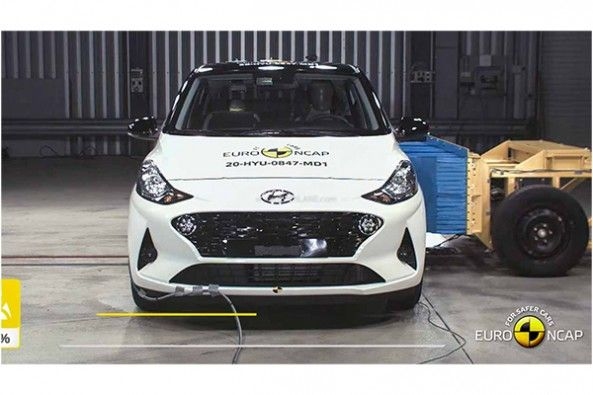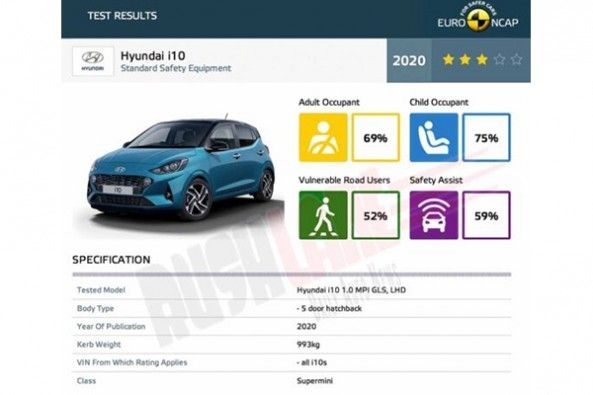General Help
Get information about our website or Droom services
The India-spec Hyundai i10 Nios scored a 2-star rating in the Global NCAP crash test a few days ago. Now its European counterpart has received a 3-star rating in the more rigorous Europe NCAP evaluation. There is no point comparing the scores of the Global NCAP test and the Euro NCAP test as the respective evaluation methods are somehow different from each other. Moreover, getting a 3-star rating in the Euro NCAP test is quite difficult than getting the same score in the Global NCAP test.

The Euro-spec Hyundai i10 Nios looks quite similar to the India-spec model. However, it comes equipped with additional standard equipment as required by the European safety standards. These equipments include standard front and curtain airbags, seat belt pretensioners, and load limiters for both the front and rear occupants. It also includes Autonomous Emergency Braking (AEB), speed assistance, and lane assist system.

Talking about the Global NCAP crash test, the India-spec NIOS i10’s structure was rated unstable while the Euro NCAP test rated the hatch’s structure as stable under frontal and side-impact tests. Furthermore, it scored 69 percent in adult occupant safety, 75 percent in child occupant safety, 52 percent in pedestrian safety, and 59 percent in the effectiveness of its safety assist systems. In adult occupant safety, the Grand i10 Nios gave an average performance. The reason was the driver’s weak chest protection in a frontal off-set crash and the poor evaluation of the driver’s abdominal protection in a full-width head-on collision. The Euro-NCAP test also stated that in the side impact test the overall level of protection for adult and child residents was satisfactory.
The Euro NCAP test makes the vehicle undergo more types of crash tests apart from putting the electronic safety assist systems through their paces to evaluate their effectiveness in avoiding impacts.